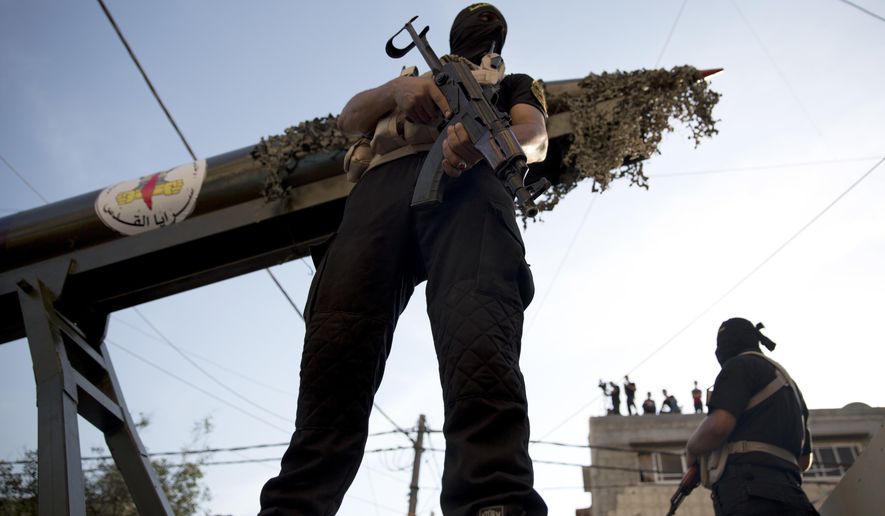Facing bipartisan criticism at home, the Biden administration has reportedly put a new hold on some $6 billion in Iranian funds held in a Qatari bank account in the wake of the attack by Palestinian Hamas militants on Israel that has killed more than 1,200 Israelis and foreigners.
Iran has been a longtime financial and military backer of Hamas, although the U.S. government has said it has seen no evidence yet Iran’s theocratic regime knew of or helped carry out the gruesome weekend attack.
Iran’s top leaders have denied any role in the uprising, while celebrating the attacks as reaction to what they described as the longtime oppression of Palestinians by the Israeli government.
The Washington Post, citing congressional sources, said Deputy Treasury Secretary Wally Adeyemo had told House Democrats privately that the Iranian money in Qatar had been frozen.
Secretary of State Antony Blinken, addressing a press conference at the end of a trip to Israel Thursday, would not directly confirm that the Iranian money had been blocked, saying only that there remained “strict” limits on how Iran could use the money and that the U.S. “retains the right to freeze them.”
The $6 billion represents Iranian oil revenues that were frozen in foreign bank accounts because of U.S. financial sanctions. The money was transferred to Qatar as part of a prisoner-swap deal last month between the U.S. and Iran.
SEE ALSO: Hamas clash throws U.S. regional diplomacy into question
The Biden administration has said the money remains under strict controls and can only be used by Iran for humanitarian and aid purposes. Critics say that money is fungible and the deal frees up Tehran to use other funds to build up its own military or to continue funding allies such as Hamas or Lebanon-based Hezbollah.
Iran’s U.N. mission said the money in the Qatar accounts belongs to Tehran and that the U.S. government cannot “renege on the agreement.”
Mr. Blinken also told reporters Thursday that he had seen gruesome photographic evidence of atrocities committed by Hamas, saying it reflected the “depravity and inhumanity” of the group the U.S. and Israel consider a terrorist organization.
He also said he planned to travel on to Jordan to meet with King Abdullah II and with Palestinian Authority head Mahmoud Abbas, and planned future talks with leaders of Saudi Arabia, the United Arab Emirates and Qatar on the fallout from the Hamas attacks.
• David R. Sands can be reached at dsands@washingtontimes.com.




Please read our comment policy before commenting.